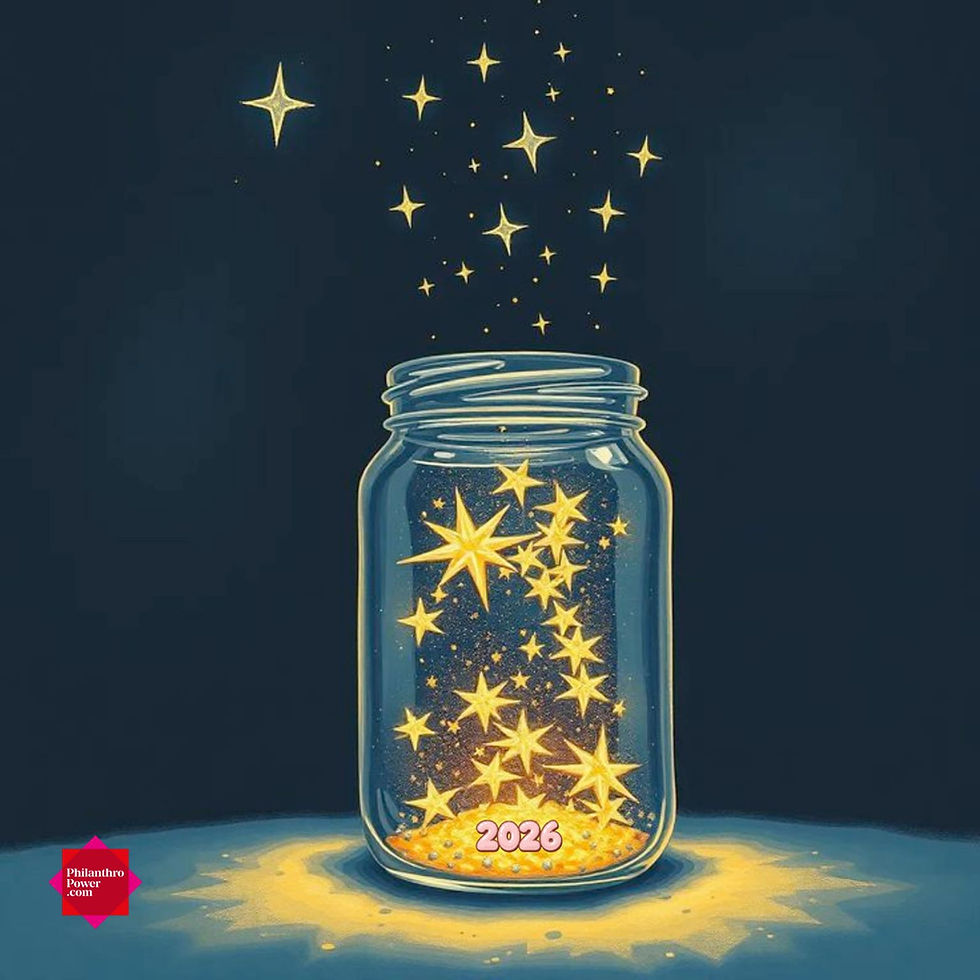Do we need a fundraiser? What is the ROI of a fundraiser?
- joy10727
- May 26, 2025
- 2 min read

I shudder when I hear these questions, not because they shouldn’t be asked, but because they often reflect a misunderstanding of what fundraising truly is.
I don’t define fundraising as a job title like “Head of Partnerships” or “Director of Development”. Instead, I see fundraising as an organisation's strategic and operational function. It is an alchemy of an innate love for the cause, passion to build relationships, preparation, strategy, execution, skill, practice, and patience. It is about building high-value partnerships rooted in shared values, trust, open dialogue and moving financial resources to drive long-term positive change. In summary, it is a function an organisation can't live without.
Now comes the answer to the question: What is the ROI of a fundraiser?
ROI (Return on Investment) is typically defined as the ratio of funds raised to the cost of raising them. Yet, I still encounter organisations that measure a fundraiser’s ROI solely by the number of grant applications submitted, won and rejected, even knowing that acquiring a new donor costs five times more than retaining an existing one.
In leading partnerships for an international development organisation, I was effective because I played multiple roles, including:
• A knowledge broker, connecting funders to the realities on the ground
• A go-to resource for understanding funders’ missions, interests, values, and constraints
• A bridge and negotiator between the funder and the team
• A coordinator, aligning multiple internal and external stakeholders
• An ambassador, representing the organisation’s mission externally
I wasn’t doing this alone — many of my peers played similar roles. And yet, this kind of work rarely shows up in ROI measurements.
As the funding landscape shifts (i.e., fewer donors commit larger amounts), the urgency to prioritise relationship-building becomes even clearer. It also calls for reassessing the fundraising function through a longer-term, more strategic lens. This is particularly important when we look at legacy giving, major gifts, and donor retention, all of which depend on sustained investment in relationships:
• Legacy fundraising can deliver a 30:1 ROI — but may take up to 10 years
• Major gifts average a 10:1 ROI — but require time, trust, and alignment
• Retained donors give 1,519% more over five years than one-time donors
I advocate for a broader, more holistic view of the fundraising function — one that values not just short-term results, but also recognises its role in:
• Building multi-stakeholder relationships
• Increasing the lifetime value of funders
• Strengthening stewardship and accountability
• Unlocking collaborative potential
• Contributing knowledge within the ecosystem
Final remark
I was greatly inspired by the recent Alliance magazine webinar (beautifully moderated by Charles Keidan with valuable input from Leslie Johnston, M.Sc., Sevda Kilicalp, Ph.D., Natalia Kiryttopoulou, and James Hooton), which conveyed that funders' practices are evolving, shifting from a purely quantitative focus to a more relational and values-driven approach. Grant seekers value building meaningful relationships with funders rooted in trust and shared purpose. Surely, this calls for a rethink of ROI thinking.. Don't you agree?
Sources:




Comments